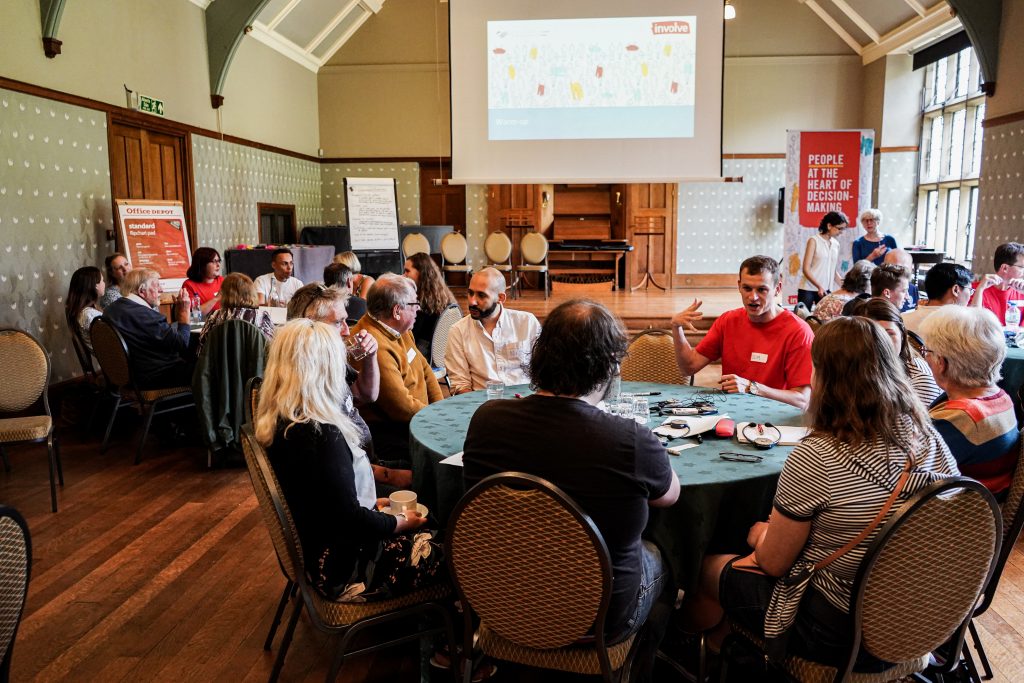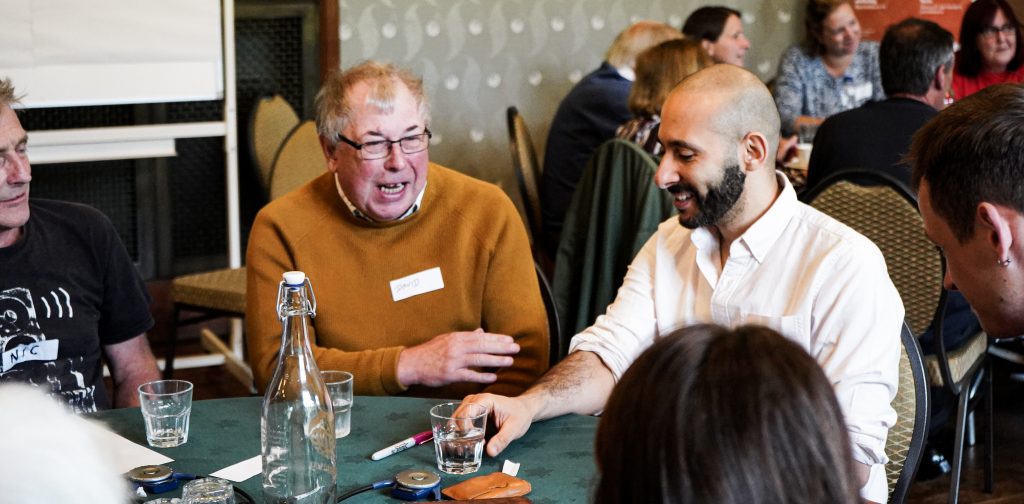Wales’ first citizens assembly is a fascinating step towards a more participatory politics, says Merlin Gable.
photos by National Assembly for Wales
Wales faces a perfect storm of problems with its democracy: it’s well-rehearsed.
An under-resourced media, historic poor public engagement with Assembly elections, and a chronic lack of public understanding of devolution and the role of the Welsh Government mean that the arrival of twenty years of devolution is as much a moment for considered reflection of why Wales has, comparatively speaking, failed to develop the healthy public sphere we might have hoped for, as well as an opportunity to celebrate our young democracy.
Certainly the Assembly Commission – the corporate body of the National Assembly for Wales – seems to think so. As part of the ‘Devolution 20’ programme of events, last weekend it held Wales’ first citizens’ assembly in Gregynog Hall near Newtown (‘equally inconvenient for all participants,’ as one wryly observed).
The idea of citizens’ assemblies is by now a fairly well-developed one: in the past few years alone they have been held on Brexit and on social care in England and in Northern Ireland. In Ireland, one of the perhaps most influential citizens’ assemblies considered a wide range of issues, and its process resulted in the referenda that legalised abortion and gay marriage.
What, then, can one do for Wales? Sixty participants, drawn from applicants from 10,000 randomly selected households, were chosen to take part. They were strictly demographically representative. As such, roughly 75% had no university degree, 25% had no GCSEs or equivalents, and 60% were non-voters in the 2016 Assembly elections. That, alone, demarcates this political gathering from any other recallable in the last twenty years in Wales.
The topic under consideration was not focused on a particular social issue or policy question, unlike examples from previous citizens’ assemblies mentioned above. Instead, participants were asked ‘how can people in Wales shape their future through the work of the National Assembly’? In order to discuss this, participants heard from expert leads about working forms of direct democracy around the world, and other mechanisms by which citizens and legislatures may interact.
Discussion of the contents of the proceedings of the citizens’ assembly must await the official report due in September, but it’s not unreasonable to feel that this somewhat vague (might there even be accusations of navel-gazing?) question rather suited the hybrid nature of the event: a serious democratic exercise if it is deemed a success; a memorable symbolic celebration of devolution and Welsh citizenship if not.

With that caveat of its wider significance aside, the event was a fascinating opportunity to watch people from across a nation often divided by geography, uneven development and cultural and class backgrounds interact with far more frankness, and at far closer quarters, than everyday life allows.
The space felt at times genuinely democratic, with individuals articulating their views in a way they rarely may have had opportunity to before, and with a series of procedures established that ensured the participants stayed in control of affairs: each participant was given a red and yellow card, to instruct a panel speaker to either stop and clarify a point or slow down respectively. This raises perhaps the most significant question an event like this seems to ask: what does democracy look like in Wales? Moreover, who does it look like, and how does it sound? What language does it speak, and does it always have to happen in Cardiff?
There was at times a timidity in the participants, demonstrative of a country still emerging from, as the Welsh writer and thinker Raymond Williams once described it, ‘a way of life determined by the National Coal Board, the British Steel Corporation, the Milk Marketing Board, the Co-op and Marks & Spencer, the BBC, [and] the Labour Party’. That is, we are well used to corporatised, institutional and managerial structures running affairs on our behalf in Wales.
It’s unsurprising in a group of people conspicuously unused to being listened to, and unused to calling the shots in an event like this, that this revealed itself in an apparent desire to follow the staffers, facilitators and expert leads in the room, and a sometimes mild bemusement at being asked to consider such apparently abstract issues. Not very encouraging for a sustainable democratic model, but perhaps indicative of the same root cause as the general lack of engagement that continues to hamper the Welsh public sphere – in that sense the citizens’ assembly might tell us exactly what we need to know.
Perhaps it was the nature of the topics considered by the citizens’ assembly, but I can’t help but feel that, regardless of the limitations of representative democracy, the crisis in public confidence in politicians, and the extraordinary political times in which we seem to live, that a long weekend is not, in fact, enough time to set the world to rights. Observers were not invited to the decision-making session of the citizens’ assembly which will result in its recommendations to be published in September.
I’ll be curious to see how the participants grappled with accumulating significant amounts of technical knowledge, and then making informed choices based upon it, in such a short time. The true tests, if citizens’ assemblies are to become a part of Welsh democracy, is how the recommendations are received by the National Assembly and whether the right balance of informing without steering participants can be achieved across a wider range of issues. If such citizens’ assemblies are built into the decision-making process – on whatever level of Welsh democracy – it feels like they can only serve to benefit us.
All articles published on Click on Wales are subject to IWA’s disclaimer.





